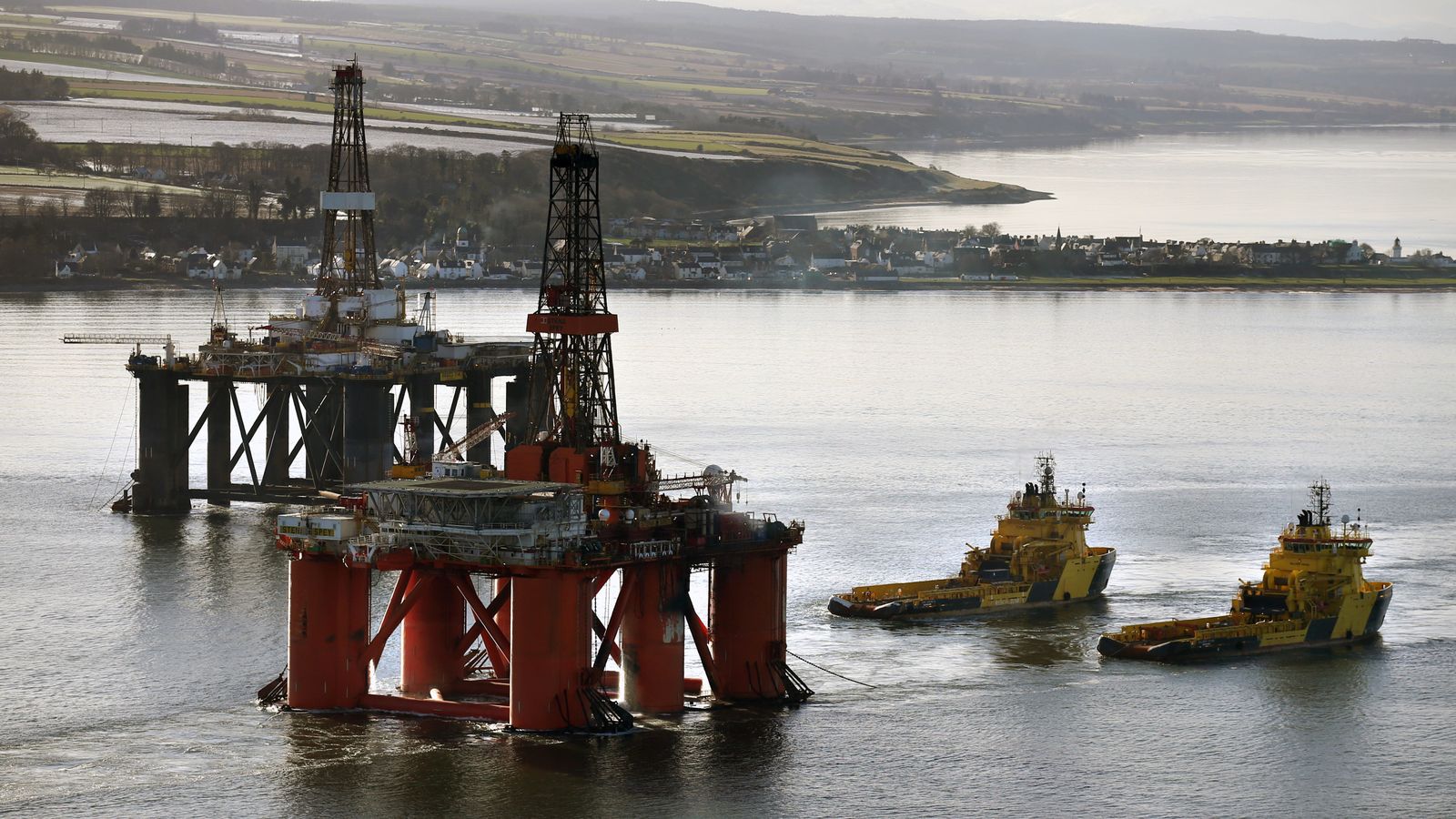Scotland’s finances are “improving at a faster rate” than the UK as a whole, a key ally of First Minister Humza Yousaf has insisted, despite new figures showing spending north of the border continues to exceed the amount raised in revenue.
Public spending in Scotland amounted to £106.6bn in 2022-23 – up by £9.3bn (9.5%) on the previous year.
The amount raised in taxes also rose to an estimated £87.5bn, including a record £9.4bn in North Sea revenues.
This increased from £2.4bn in 2021-22 following the introduction of the UK government’s energy profits levy – a windfall tax on the oil and gas industry.
Total revenue for Scotland increased by £15bn (20.7%), which compares to growth of 11.3% for the UK as a whole.
As well as the rise in North Sea revenues, Scottish government income from other sources increased by £8.1bn (11.5%) – including a £1.9bn rise from Scottish income tax.
Overall, the Government Expenditure and Revenue Scotland (Gers) figures show the country had a £19.1bn deficit – the equivalent of 9% of GDP.
Daniel Wood jailed for sexually assaulting 17-year-old boy in Aberdeen and another man in Aberdeenshire
Man fighting for life and another seriously injured after bus and van crash on A77 in East Ayrshire
ScotRail train drivers vote to accept new pay deal, union ASLEF says
The UK had a deficit of 5.2% of GDP.
However with the 2021-22 deficit in Scotland at 12.3% of GDP, wellbeing economy secretary Neil Gray hailed the reduction.
He also claimed a “full £1bn” of the deficit in Scotland was “the direct result of the UK government’s mismanagement of the public finances”.
Mr Gray said: “I am pleased that Scotland’s finances are improving at a faster rate than the UK as a whole, with revenue driven by Scotland’s progressive approach to income tax and our vibrant energy sector.”
While Scotland received more than £9bn in North Sea revenues last year, a further £78.1bn went to Westminster – which amounted to 7.7% of all UK revenue.
Mr Gray said the Gers figures show how “the UK continues to benefit from Scotland’s natural wealth”.
But he added: “These statistics do not reflect the full benefits of the green economy, with hundreds of millions of pounds in revenue not yet captured.
“It is important to remember that Gers reflects the current constitutional position, with 41% of public expenditure and 64% of tax revenue the responsibility of the UK Government.
“An independent Scotland would have the powers to make different choices, with different budgetary results, to best serve Scotland’s interests.
“While we are bound to the UK’s economic model and do not hold all the financial levers needed, we will continue to use all the powers we do have to grow a green wellbeing economy, while making the case that we need independence to enable Scotland to match the economic success of our European neighbours.”
Please use Chrome browser for a more accessible video player
Read more:
There’s a lot of noise in the debate over North Sea oil and gas
Energy security plan aims to boost job creation and reduce reliance on states like Russia
Be the first to get Breaking News
Install the Sky News app for free
The rise in expenditure in Scotland included “significant spending on support for the cost of living for households and businesses”, the Gers report said, with this worth £4.5bn for Scotland in 2022-23.
Spending on reserved debt interest payments, which are partly linked to inflation, also increased “sharply”, it was noted.
The reduction in the deficit was “primarily explained by the contribution of North Sea revenue and activity”, the report concluded.
Scottish Secretary Alister Jack said: “The Scottish government’s own figures show yet again how people in Scotland benefit hugely from being part of a strong United Kingdom.
“Scotland’s deficit is more than £19bn – even in a year of exceptional North Sea revenues. Without oil and gas, that figure soars to more than £28bn.
“People in Scotland benefit to the tune of £1,521 per person thanks to higher levels of public spending.
“As we face cost of living pressures and unprecedented global challenges it is clear Scotland is better off as part of a strong United Kingdom.”






















